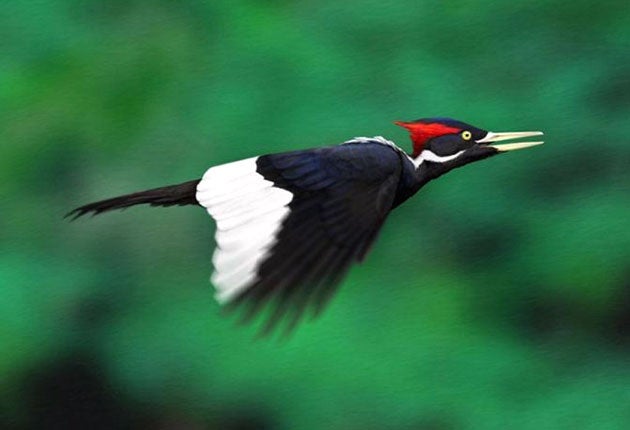Charity scours globe in search of long-lost birds
BirdLife International in bid to discover whether 'missing' species are in fact extinct

The hunt is on for 47 "long-lost" species of bird in an attempt to discover if they have escaped extinction.
BirdLife International is launching a global attempt today to try to confirm the existence of the critically endangered birds which, in some cases, have not been seen for more than 180 years. The list of birds which could have become extinct includes the slender-billed curlew, one of the last verified sightings of which was in the UK a decade ago. Other species being targeted by the international coalition of bird conservation groups include birds found in remote forests or islands, in parts of the US and Europe and in the Himalayas.
Some may be difficult to track down, such as the Archer's lark which is found in the war zones of Somalia, while some have not been seen for generations, including the hooded seedeater of South America, which has not been recorded since 1823.
If scientists are unable to find many of those on the list it could mean the extinction crisis is worse than feared. A failure to confirm the continued existence of the lost birds would increase the number which have gone the way of the dodo – currently estimated at some 133 species since 1500.
But conservationists are hopeful that some of the birds could be rediscovered, such as the Cebu flowerpecker, which was found again "at the eleventh hour" before its last remaining Philippines forest home was destroyed.
Marco Lambertini, BirdLife International's chief executive, said: "History has shown us that we shouldn't give up on species that are feared to have gone to their graves, because some have been rediscovered long after they were feared extinct. The extinction crisis is gathering momentum, but that's no excuse for humanity to allow even more strands of the web of life to disappear, especially without giving them a final chance."
Rediscoveries could allow scientists to study their needs and threats and establish conservation efforts to save them and their habitats. The quest to find lost species is being announced at the 21st British Birdwatching Fair at Rutland Water, which is set to attract more than 20,000 British bird watchers. Money raised there will help fund the searches.
Join our commenting forum
Join thought-provoking conversations, follow other Independent readers and see their replies
Comments
Bookmark popover
Removed from bookmarks